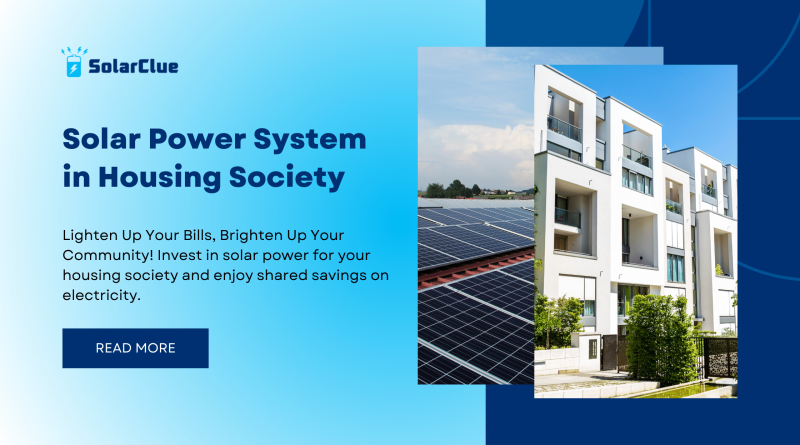Solar Power System for Housing Society
Table of Contents
Solar Power System for Housing Society
With the ever-increasing demand for energy and the rising concerns about environmental sustainability, more and more housing societies are turning towards solar power systems as a reliable and eco-friendly source of electricity. Solar power systems not only reduce electricity bills but also contribute to a cleaner and greener environment. In this blog, we will explore the benefits of installing a solar power system in a housing society and how it can make a positive impact on both the residents and the planet.
Understanding Solar Power System
A solar power system consists of solar panels that convert sunlight into electricity through the photovoltaic effect. These solar panels are usually installed on the rooftop of buildings where they can receive maximum sunlight. The electricity generated by the solar panels can be stored in batteries or fed back into the grid for later use. In a housing society, a solar power system can be a cost-effective and sustainable way to meet the electricity needs of its residents.
Benefits of Installing Solar Power System
One of the key benefits of installing a solar power system in a housing society is the significant reduction in electricity bills. By harnessing the power of the sun, residents can generate their electricity and reduce their dependence on conventional sources of energy. This can lead to substantial savings in the long run and protect residents from future energy price hikes.
Moreover, solar power systems are environmentally friendly as they produce clean energy without emitting harmful greenhouse gases. By switching to solar power, housing societies can contribute to reducing their carbon footprint and combat climate change. This not only benefits the immediate community but also sets an example for others to follow in adopting sustainable practices.
Financial Incentives for Solar Power System
Many governments and local authorities offer financial incentives and subsidies to encourage the adoption of solar power systems. These incentives can include tax credits, rebates, and low-interest loans that help offset the initial cost of installing a solar power system. By taking advantage of these incentives, housing societies can make the transition to solar power more affordable and attractive.
Community Engagement and Awareness
Installing a solar power system in a housing society can also create a sense of community engagement and awareness about sustainable living practices. Residents can come together to learn about the benefits of solar power and how it can make a positive impact on their daily lives. This shared commitment to sustainability can strengthen the bond among residents and create a more environmentally conscious community.
Challenges and Considerations
While solar power systems offer numerous benefits, there are several challenges and considerations that housing societies need to take into account before installing them. Factors such as the initial cost of installation, the availability of sunlight, and the size of the rooftop space can influence the feasibility of a solar power system. Additionally, maintenance and monitoring of the system are crucial to ensure its optimal performance and longevity.
Conclusion
In conclusion, a solar power system can be a game-changer for housing societies looking to reduce their electricity bills, minimize their carbon footprint, and promote sustainable living. By harnessing the power of the sun, residents can take control of their energy consumption and make a positive impact on the environment. With the right incentives and community engagement, installing a solar power system can be a rewarding investment that benefits both residents and the planet.




